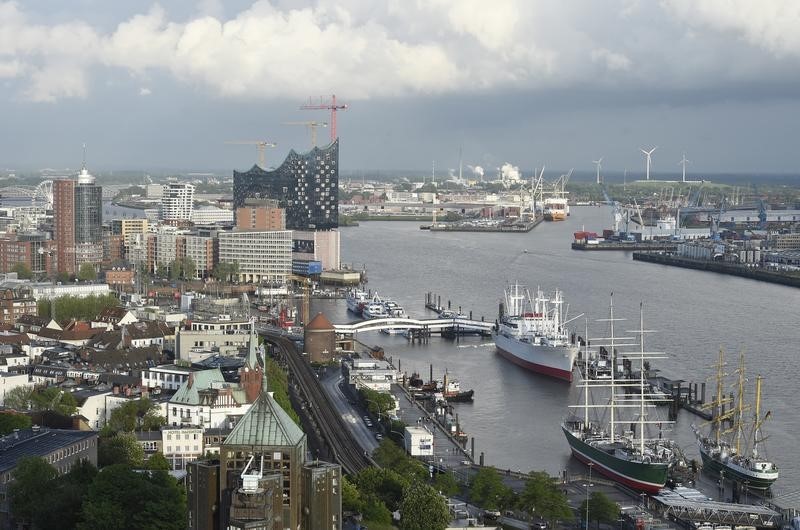BRUSSELS (Reuters) - Euro zone's surplus for goods traded with the rest of the world dropped in May as exports fell and imports increased, one month before United States' tariffs on European steel and aluminum kicked in, official data showed on Monday.
The European Union's statistics office, Eurostat, said the 19-country currency bloc had a goods trade surplus of 16.5 billion euros ($19.3 billion) in May, compared with 19.3 billion a year earlier, according to non seasonally adjusted estimates.
The reduced surplus was caused by a 0.8 percent fall in exports compared with a year earlier, while imports rose 0.7 percent.
Last week, the European Commission cut its growth forecast for the euro zone for 2018, citing trade tensions as one of the main reasons for the slowdown.
Figures adjusted for seasonal effects showed a drop in the surplus to 16.9 billion euros in May from 18.0 billion euros in April. Month-on-month, euro zone exports rose by 0.2 percent, while imports increased by 0.9 percent.
The trade balance for the whole of the European Union was nearly flat in May, recording a marginal surplus of 0.2 billion euros, compared with 2.3 billion a year earlier, non seasonally adjusted estimates showed.
The 28-country EU expanded the surplus in its trade in goods with the United States, the bloc's main trade partner, to 54.8 billion euros in the period between January and May compared with 48.1 billions in the same period of the previous year.
In the first five months of the year, before the U.S. decision on June 1 to introduce import tariffs on EU steel and aluminum, the EU increased its overall exports to the U.S. by 2.1 percent and reduced its imports by 3.1 percent.
